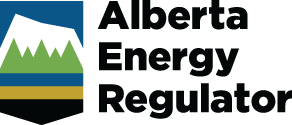What's NewAll reporting and monitoring requirements to resume on July 15 – June 23 @ 11:00 am The AER’s temporary suspension of some reporting requirements ends on July 15, 2020. This decision follows steps taken by the Government of Alberta, including the repeal of Ministerial Order 219/2020 and Ministerial Order 17/2020. The AER has also issued amendments to six of our decisions, which temporarily suspended certain monitoring requirements and associated activities under the Environmental Protection and Enhancement Act, Water Act, and Public Lands Act. The following six decisions have been amended to expire on July 15:
The AER will work with industry to comply with all reporting and monitoring requirements by July 15. We will continue to monitor the government’s public health direction See also: |
The AER continues to identify areas of temporary relief to support industry’s ability to comply with the public health orders currently in effect.
Because the public health orders limit physical interactions, industry, like all Albertans, have been challenged to conduct day to day activities and still comply with the orders that are in place to protect public health.
Bulletin 2020-10: Relief for Industry During COVID-19 Pandemic Response explains how two ministerial orders apply to parties we regulate. Section 6 of Alberta Energy ministerial order 219/2020 modifies the operation of the acts, to the extent it’s necessary, to enable reasonable compliance with the COVID-19 orders issued under the Public Health Act, including guidelines issued by the Chief Medical Officer of Health.
It is under this authority that we have identified additional temporary relief that allows industry to continue with critical work while protecting the health and safety of industry workers and all Albertans.
We established two guiding principles to evaluate requests. First, there must be a demonstration that the public health orders pose a challenge in completing the monitoring activity. Second, any deferral of monitoring must have a low risk of potential short- and long-term impacts. We have only provided temporary measures that are supported by technical experts and do not impact the AER’s ability to fulfil its mandate. The AER has tens of thousands of requirements written into legislation and individual project approval documents. In general terms, here are examples of some of the requirements that remain in place and those that have changed.
The list of items deferred is limited and complies with those guiding principles. They have all been shared within the updates below; some required formal decisions. These suspensions and modifications will apply for so long as ministerial orders 17/2020 and 219/2020 and the public health orders are in effect, or otherwise directed by the AER.
Industry must continue to report as directed in compliance and enforcement orders and fulfill all requirements where temporary relief has not been provided. They must also continue to report emergencies, including incidents, notifications, contraventions, and releases that have or may have the potential to impact the environment or public safety to the Energy and Environmental Emergency 24-Hour Response Line at 1-800-222-6514. In addition, volumetric reporting, and reporting related to very high and extreme consequence dams is still required.
During the period of temporary suspensions, parties must continue to record and retain complete documentation relating to any reporting and make it available upon request.
If you have questions not answered here, please contact @email.
Recent Updates
Public Statement issued: June 09 @ 3:50 pm
Temporary suspension of low risk monitoring and reporting
In response to public health orders issued by the Government of Alberta, members of Alberta's energy industry have submitted information to the Alberta Energy Regulator (AER) about conflicts between these orders and AER requirements. <more>
Industry relief updates: May 20 @ 1:00 pm
Oil sands mining
Operators that conduct twice annual surveys to determine the volumes of fluid tailings and treated fluid tailings in their storage facilities are now required to perform only one of those surveys in 2020. All other operators that normally conduct one survey a year who are unable to conduct these surveys must submit for the AER’s approval proposed variances to their measurement plans for the 2020 annual surveys. Survey findings must be reported as outlined in Directive 085 Fluid Tailings Management for Oil Sands Mining Projects.
With respect to the requirement for measurement under Section 20 of the Oil Sands Conservation Rules, except for royalty or custody transfer measurements:
- An operator can modify or temporarily suspend field activities for S-23 production accounting manual regulated meters and instrumentation. Operators must provide a summary of any modification or suspension to the AER.
- An operator can modify or temporarily suspend sampling required by the S-23 production accounting manual. Sampling may require additional workers on site and in the lab. Operators must provide a summary of any modification or suspension to the AER. Operators must have adequate sampling in place to ensure accurate volumetric reporting in PETRINEX.
Conventional oil and gas
Requirements under Directive 017: Measurement Requirements for Oil and Gas Operations are temporarily suspended for licensees to conduct any liquids-to-gas ratio testing or oil and gas sampling where third-party contractors are required on site to complete the work. Any testing that may be conducted, or samples that may be collected and sent to lab without the assistance of third-party contractors must continue.
The requirement for the five-year integrity testing for aboveground storage tanks, as outlined in Appendix 2.1.2 of Directive 055: Storage Requirements for the Upstream Petroleum Industry, is temporarily suspended. Monthly visual inspections of tanks and the surface of the diked area for evidence of problems, damage, or leakage must continue as required by section 5.3.2.2 of Directive 055.
Pipeline deactivation reminder
A reminder that the deactivation of pipelines must be done with consideration for the future use of the pipeline. Internal and external corrosion mitigation and monitoring must continue on deactivated pipelines that are susceptible to corrosion. Deactivated pipelines should be purged and left in a safe condition that does not promote corrosion or represent a threat to the environment. Non-metallic pipelines should be purged so they are left in a safe condition. After 12 months of deactivation, the pipeline is required to be returned to service, discontinued, or abandoned.
Stack testing
The AER understands that there may be limitations in the ability of approval holders to complete all required manual stack testing (stack surveys), relative accuracy test audit activities, and cylinder gas audit activities as described in EPEA approvals due to the COVID-19 pandemic. Approval holders may apply to the AER to modify the frequency and timing of these activities if they are concerned with their ability to meet the requirements due to the pandemic.


